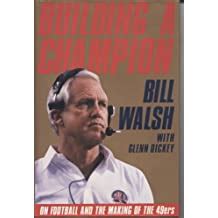A Quote by Richard Hugo
Maximum sentence length: seventeen words. Minimum:one No semicolons. Semicolons indicate relationships that only idiots need defined by punctuation. Besides, they are ugly. Make sure each sentence is at least four words longer or shorter than the one before it.
Related Quotes
Listen and learn: you need fourteen characters, minimum. Use random letters, not words. Here’s a tip: think of a sentence, and use the first letter in each of those words. Mix it up between upper and lower case. Then pick two numbers that mean something to you – not dates – and stick them somewhere between the letters. Put a punctuation mark at the beginning of the password and then a symbol, like a dollar sign, at the end.
Most people write the same sentence over and over again. The same number of words-say, 8-10, or 10-12. The same sentence structure. Try to become stretchy-if you generally write 8 words, throw a 20 word sentence in there, and a few three-word shorties. If you're generally a 20 word writer, make sure you throw in some threes, fivers and sevens, just to keep the reader from going crosseyed.
I don't think music affects what words I choose to type in what order, within what punctuation, at this point, because I'm rereading and editing each sentence, at this point, in my published books, probably 100-150 times each, on average, and listening to probably 20-60 different songs in that time.
It should come as no surprise that writers take an interest in punctuation. I have been told that the dying words of one famous 20th-century writer were, "I should have used fewer semicolons" - and although I have spent months fruitlessly trying to track down the chap responsible, I believe it none the less. If it turns out that no one actually did say this on their deathbed, I shall certainly save it up for my own.
sentences were used by man before words and still come with the readiness of instinct to his lips. They, and not words, are the foundations of all language. ... Your cat has no words, but it has considerable feeling for the architecture of the sentence in relation to the problem of expressing climax.
Writing is linear and sequential; Sentence B must follow Sentence A, and Sentence C must follow Sentence B, and eventually you get to Sentence Z. The hard part of writing isn't the writing; it's the thinking. You can solve most of your writing problems if you stop after every sentence and ask: What does the reader need to know next?







































